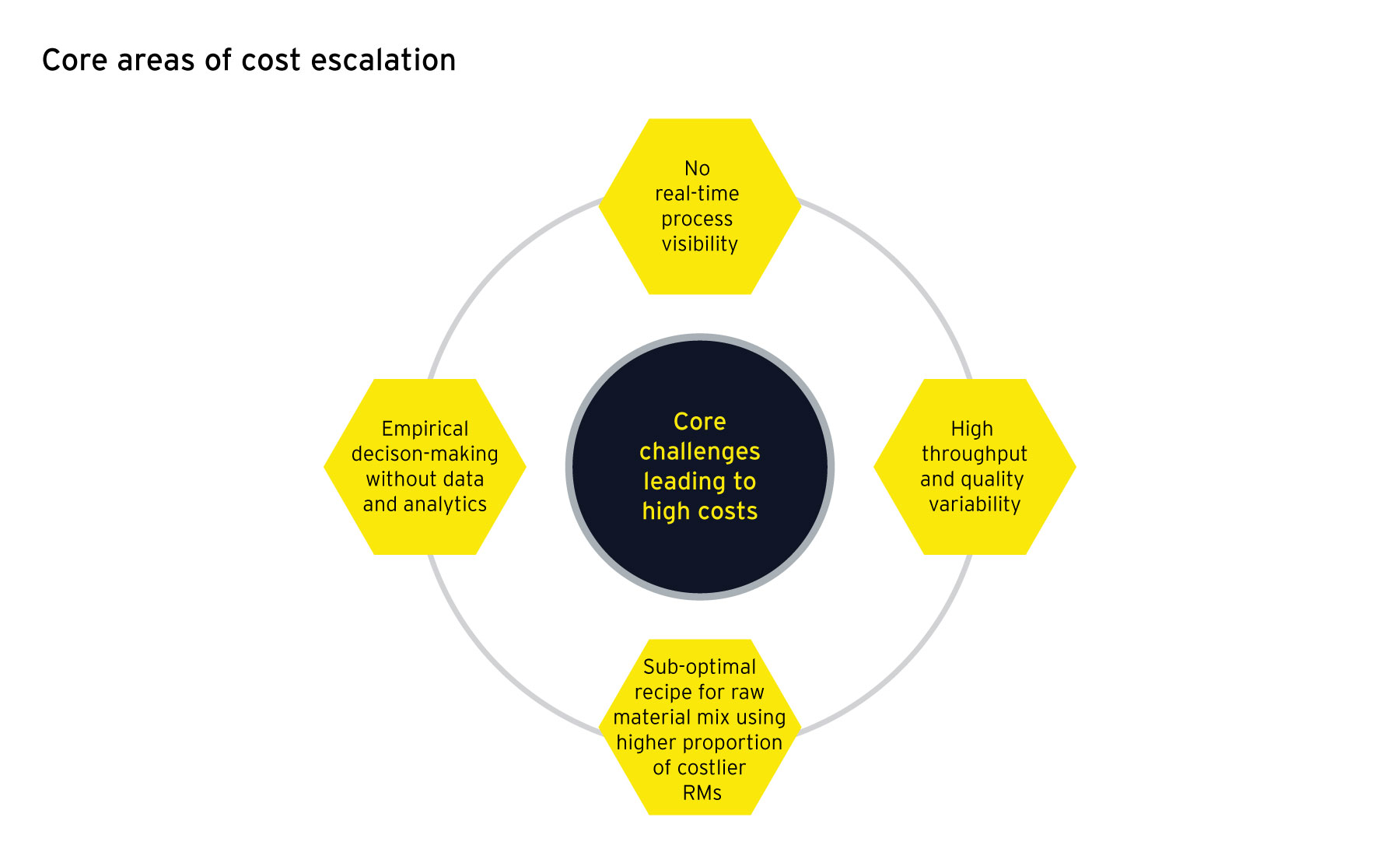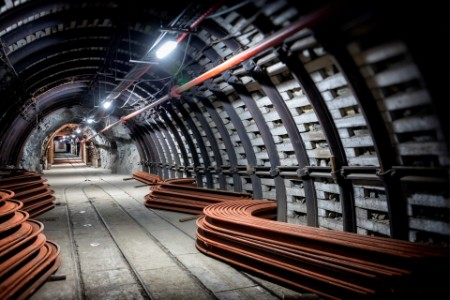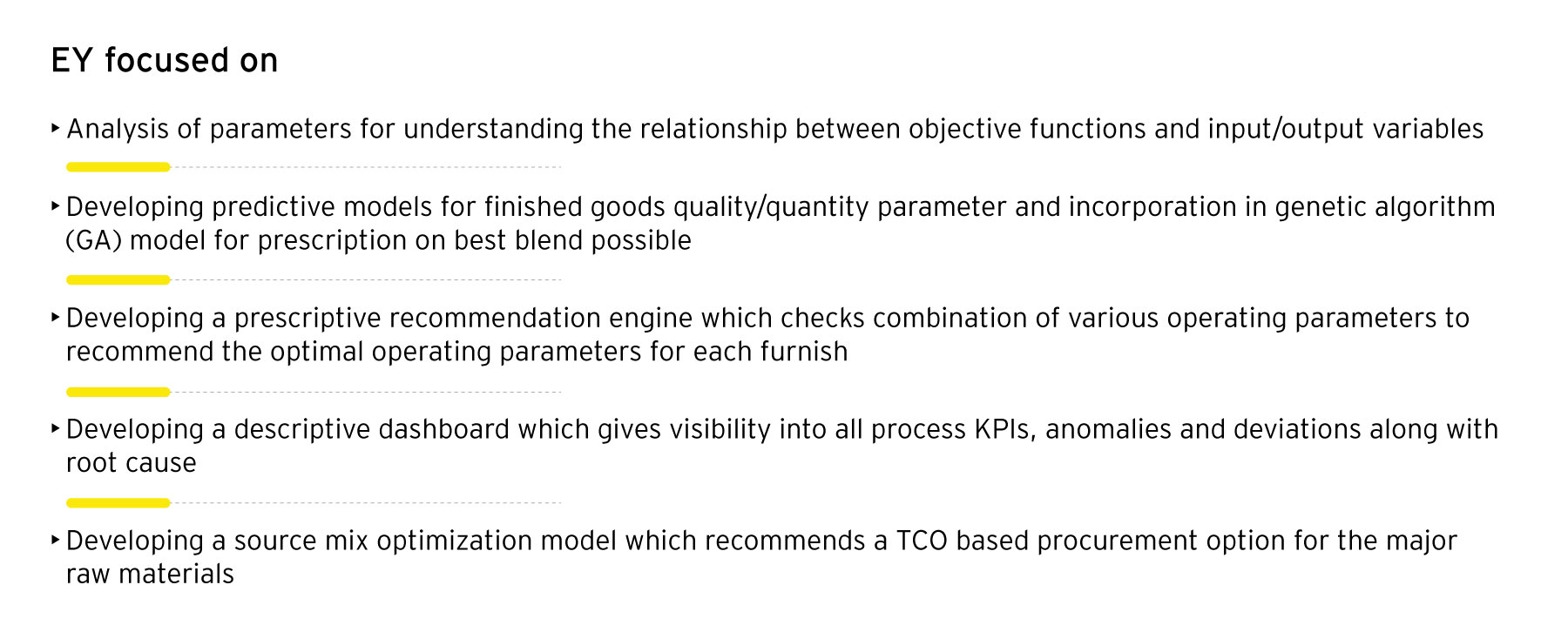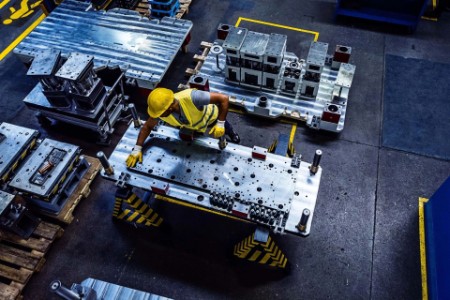
How can we view all cost and value leakages in real-time?
A leading Indian fibre cement roofing solution company, with multiple manufacturing sites within and outside India and a global sales and distribution network spread across more than 80 countries, identified several areas for cost reduction and productivity improvement in manufacturing. The company realized that the absence of AI-enabled transformation in manufacturing was resulting in elevated production costs. The raw material costs accounted for more than 80% of its overall costs. As a result, raw material cost optimization was chosen as an area of focus. However, the company faced many difficulties in assessing the root cause analysis in manufacturing, which made estimating the amount of actual cost reduction opportunities hard to measure.
The in-depth process study supplemented with data-based opportunity identification helped identify improvement levers for overall raw material cost optimization and subsequently the overall production cost.

Overcoming the core challenges would lead to increased operational efficiency in production, more process stability in manufacturing, quality consistency and better raw material cost optimization. Therefore, the company sought a solution with the ability to understand every aspect of its operations and provide real-time operational visibility so that cost escalations could be identified and rectified early on.

A “Digital Twin” in manufacturing tracks all aspects of operations in real-time.
Building a digital twin in manufacturing was an arduous task as it required deep understanding of the company’s production operations. EY’s approach towards comprehensively mapping the physical operations of the company’s production operations comprised three stages: process, technology and people.
Process stage: The process stage started with obtaining deep understanding of all operations processes. It involved discussions with the operations teams, including ideation and validation workshops. Moreover, this stage involved developing business cases of all possible scenarios and performance monitoring of every operational stage.

Technology stage: The technology stage began with data collection and analysis of every operational stage. Based on that, we built a solution leveraging an analytical optimization layer with the ability to provide visibility of operations, as well as the analytical abilities to suggest quality deviations or raw material consumption and other such parameters as identified.

People stage: The third stage involved training and adoption of the tool across the enterprise. EY worked with the various stakeholders involved in the process through training workshops, change management sessions and implementation support. We also conducted several knowledge sessions among the people to enable utilization and adoption.

EY’s approach was based on the company’s vision and strategic requirements. The team supported the company with change management, program management, governance and consulting skills to ensure success of the project. We also helped build an analytics and reporting dashboard for the management of the company.
Across the three stages listed above, EY focused on some core areas.

The development and implementation of the AI-enabled transformation journey can be traced across the following four stages.
Descriptive: Identification and visualization of right KPIs across the value chain
Diagnostic: Root Cause Analysis (RCA) features leveraging the ‘driver tree’ approach to identify lead indicators impacting performance
Predictive: Enabling simulations and sensitivity analysis for the critical production parameters
Prescriptive: involving integration of the predictive models leveraging Genetic algorithms to prescribe most optimal recommendations

The solution enables real-time operations cost monitoring.
The AI-enabled “Manufacturing Intelligence Platform” is a digital representation of a production system that spans across the complete production line, is updated from real time data, uses simulation modelling, predictive and prescriptive analysis to aid business and process owners in decision making.
The company witnessed improvements in efficiencies across various processes and reporting across various functions. Acknowledging that raw material consumption constituted over 80% of production costs, the “Manufacturing Intelligence Platform” allows raw material consumption monitoring which significantly helps reduce costs through scientific modeling, scenario simulations and decision-support.
The AI-enabled solution helps the company realize unprecedented improvements in efficiency and costs.
The company is currently in the process of enhancing value from the solution, including benefit tracking and performance monitoring, implementation of individual initiatives, onboarding vendors and suppliers, and enhancing technological foundations.
Related content
The team
Contact us
Interested in the changes we have made here,
contact us to find out more.


